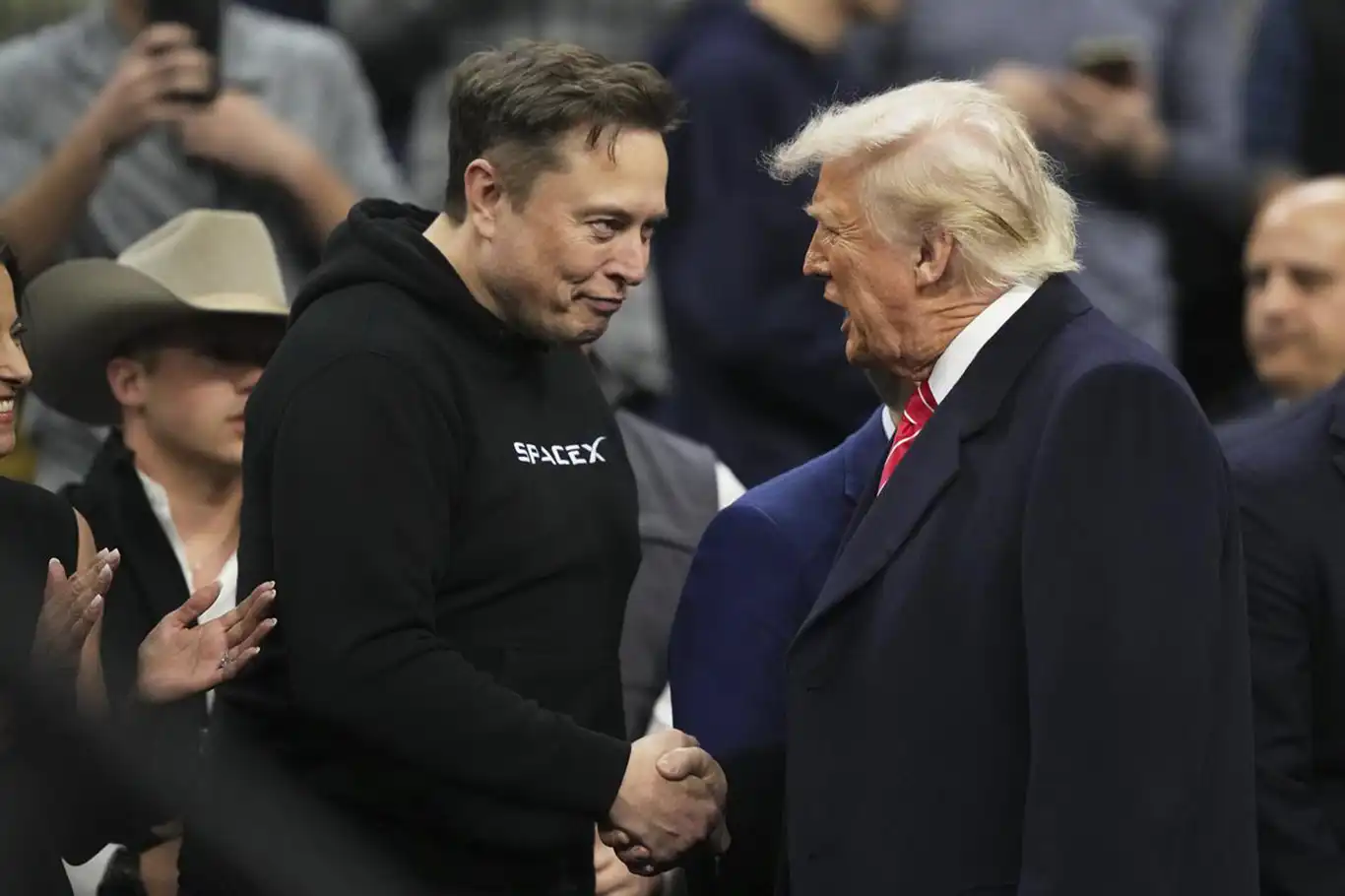Elon Musk steps down from Trump administration efficiency role


Elon Musk, the billionaire CEO of Tesla and SpaceX, has stepped down from his role in the Trump administration after leading the controversial Department of Government Efficiency (DOGE).
Musk, who served as a special government employee, formally announced his departure on Wednesday evening in a post on his social media platform, X.
“As my scheduled time as a Special Government Employee comes to an end, I would like to thank President @realDonaldTrump for the opportunity to reduce wasteful spending,” Musk wrote. “The @DOGE mission will only strengthen over time as it becomes a way of life throughout the government.”
Musk's departure was expected, as his federally designated role allowed him to serve up to 130 days per year—a limit he was set to reach by late May, following Trump’s inauguration on January 20. However, the timing of his exit coincided with rising tensions, particularly after Musk publicly criticized the administration’s multi-trillion-dollar budget bill. Speaking to CBS, Musk described the bill—which includes major tax cuts and increased defense spending—as a setback to DOGE’s mission.
“I think a bill can be big or it could be beautiful, but I don’t know if it could be both,” he said.
What Is DOGE?
The Department of Government Efficiency (DOGE), created under Trump’s second term, was tasked with overhauling federal spending and reducing government size. Musk originally pledged to cut $2 trillion in federal expenditures but later revised the goal to $150 billion. The department's aggressive approach resulted in approximately 260,000 job cuts or voluntary redundancies out of the 2.3 million-strong civilian federal workforce.
The initiative was marred by controversy, including legal challenges. In several cases, federal judges blocked mass terminations and reinstated employees, particularly in critical sectors such as the U.S. nuclear program, where administrative errors led to the dismissal of essential personnel.
Why Musk Is Leaving
Musk's time in government coincided with mounting challenges at Tesla. The company reported a 13% drop in sales during Q1 2025—its steepest quarterly decline on record. Tesla’s stock fell by as much as 45%, though it has since rebounded slightly and remains down about 10% year-to-date. Tesla cited “changing political sentiment” as a factor negatively affecting demand.
Musk became a polarizing figure, with DOGE serving as a lightning rod for criticism of broader Trump administration policies. Activists targeted Tesla with protests, vandalism, and calls for boycotts. U.S. Attorney General Pam Bondi responded by classifying acts of vandalism against Tesla as potential "domestic terrorism."
In addition to mounting public criticism, Musk reportedly clashed privately with several Trump cabinet officials, adding to his decision to step away.
Return to Business Focus
In late April, Musk indicated he would reduce his involvement in government to refocus on his business ventures. He reiterated that commitment earlier this week during an economic forum in Doha, Qatar, where he pledged to continue leading Tesla for the next five years.
Musk also announced plans to scale back his political contributions, following nearly $300 million in support of Trump and other Republican campaigns during the 2024 election cycle.
As Musk exits public service, the future of DOGE remains uncertain. The program’s sweeping cost-cutting measures have drawn praise for improving fiscal discipline but also criticism for destabilizing government operations.
With his focus now returning to Tesla and SpaceX, Musk leaves behind a divisive legacy as a public-sector reformer whose bold ambitions collided with political realities. (ILKHA)
LEGAL WARNING: All rights of the published news, photos and videos are reserved by İlke Haber Ajansı Basın Yayın San. Trade A.Ş. Under no circumstances can all or part of the news, photos and videos be used without a written contract or subscription.
The Yemeni Armed Forces (YAF) carried out a series of high-impact military operations on Tuesday targeting Israeli sites in the occupied Palestinian territories, according to an official military statement.
Dr. Hussam Abu Safiya, the director of Kamal Adwan Hospital in northern Gaza, is facing dire health conditions and inhumane treatment in Israeli detention, according to his family.
U.S. President Donald Trump declared that Israel has “agreed to the necessary conditions to finalize” a 60‑day ceasefire in Gaza, as part of a U.S.-mediated initiative—with Qatar and Egypt poised to deliver the final terms to Hamas.
President Recep Tayyip Erdoğan has issued a strong condemnation of Leman magazine following its publication of a controversial cartoon depicting Prophet Muhammad and Prophet Moses.